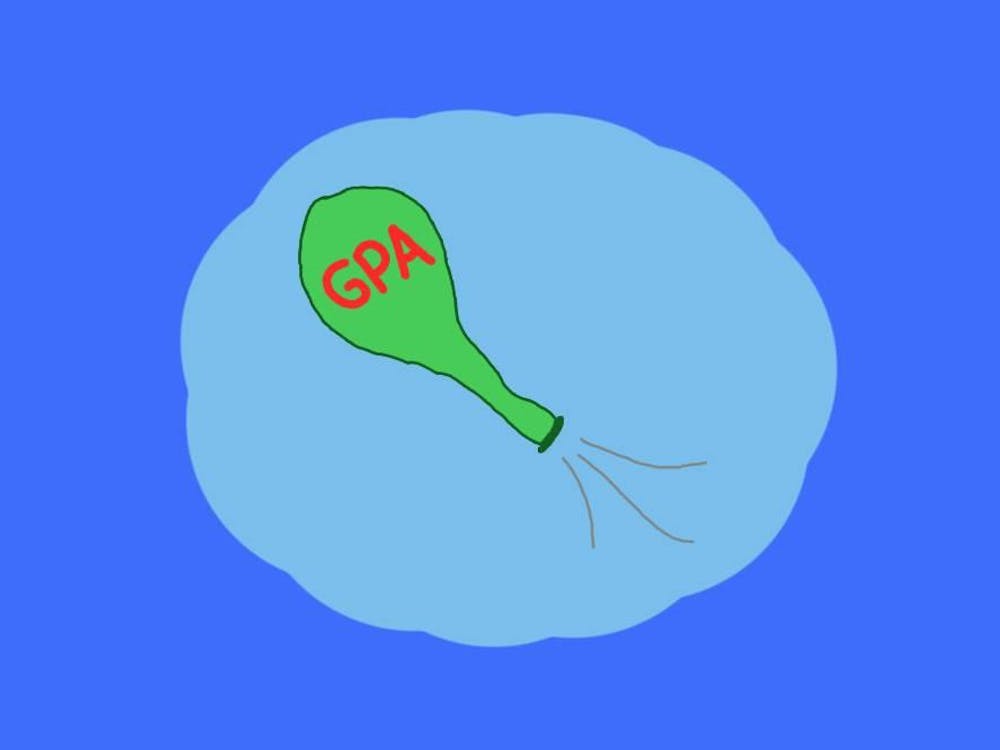IT'S CALLED a monopoly - when a business owns a 90 percent market share and aggressively protects itself against any attacks on its customer base. And in most cases it's illegal. Unfortunately for students everywhere, public schools are one notable exception.
Alas, such is the situation in America. Land of the free - except when it comes to choosing children's education. For years, public schools have chugged along, educating in some cases, and in some cases failing miserably. Now there is a movement afoot to provide some competition for public schools, and it is being fought at every corner.
Voucher programs are not so new - it's just that they're gaining popularity despite the efforts of bureaucrats to keep them under wraps. Students in such programs are given a portion of funds reserved for public education to put toward private school tuition. The principle behind the programs is that by allowing all students to choose the school they will attend - as opposed to the current situation wherein private schools often cater to middle- and upper-class students - the result will be better education and a more level playing field.
Voucher programs generally are attacked on two key points. Some opponents claim that they are ineffective, failing to raise students' standardized test scores. Many of these claims, however, are based on a study done in 1990 in Milwaukee on the first public voucher program. Evaluated by University of Wisconsin researchers, the reports maintained that the program failed to result in better schools.
When the data from the program finally was made available in 1996, a team of researchers from the University of Houston and Harvard University undertook the task of reevaluating the data. In their study, "The Effectiveness of School Choice in Milwaukee: A Secondary Analysis of Data from the Program's Evaluation," the researchers concluded that the program did effectively raise the scores of students as compared to their peers. The group also pointed out several severe analytical and statistical flaws in the original reports, and suggested the opposite summation (http://hdc-www.harvard.edu/pepg/op/evaluate.htm).
The study acknowledged that the Milwaukee voucher program raised scores despite severe restrictions. The vouchers only were offered to several hundred children from low-income households, and the monetary value of each voucher was only half of what the Milwaukee public schools spend per student. In addition, vouchers could not be used for parochial schools, which make up more than 90 percent of Milwaukee private schools. Nevertheless, scores went up.
The second part of the opponents' argument typically hinges on the grounds that the use of public money to pay for parochial schools violates the establishment clause of the First Amendment, which mandates the separation of church and state. This argument, however, centers around some supposed "right" of the government to teach - and indoctrinate - children. There is, of course, no such right.
Opponents of school choice further object to the teaching of religion and other such non-government-sanctioned pursuits. This argument contradicts basic tenets of our nation. Freedom of religion should allow students to attend a parochial school, rather than prevent them. Parents are using money - their money - to buy their children an education of their choosing. Whether it contains religious instruction or not is incidental.
The advantage of voucher programs is that parents can spend their money how they see fit. Public schools are funded with taxes - often property taxes, which partially account for better schools in richer districts. People must pay these taxes regardless of the quality of local schools, and their own choices for their children's education. Even if parents send their children to private schools, they still pay taxes that fund the public school system. The voucher system, then, acts as a refund system for parents who wish to educate their children elsewhere.
Change in education will come as parents begin to assert their control. Fostering competition for public schools quickly and effectively can create a viable alternative. When critics of the programs prefer to reform the public systems as opposed to creating competition, they show their allegiance to the status quo.
The plight of public school systems is not new. Public schools have been deteriorating - along with the country and cities - as the schools have been growing larger. Privatizing the school industry will focus the control of schools more locally, with more power going to parents.
Anyone who talks about a drastic turnabout in the education system is doing just that, talking. A national bureaucracy and a powerful union control public schools, but private schools are controlled by a headmaster. Much like the CEO of a business, the headmaster of a school must produce results or be replaced. Unfortunately, the same is not true of changing a public school.
In an age when consumers' cries for customization have produced an explosion of new companies and a new medium - the Internet - we should not deny our children the same revolution. Private schools can cater to students needs - local situations, special-education needs and disabilities, or more competition for talented students - more effectively than existing public schools. Just as new Internet startups are shaking up big business, so can private schools create new value for students.
(Nick Lawler is a Cavalier Daily associate editor.)




